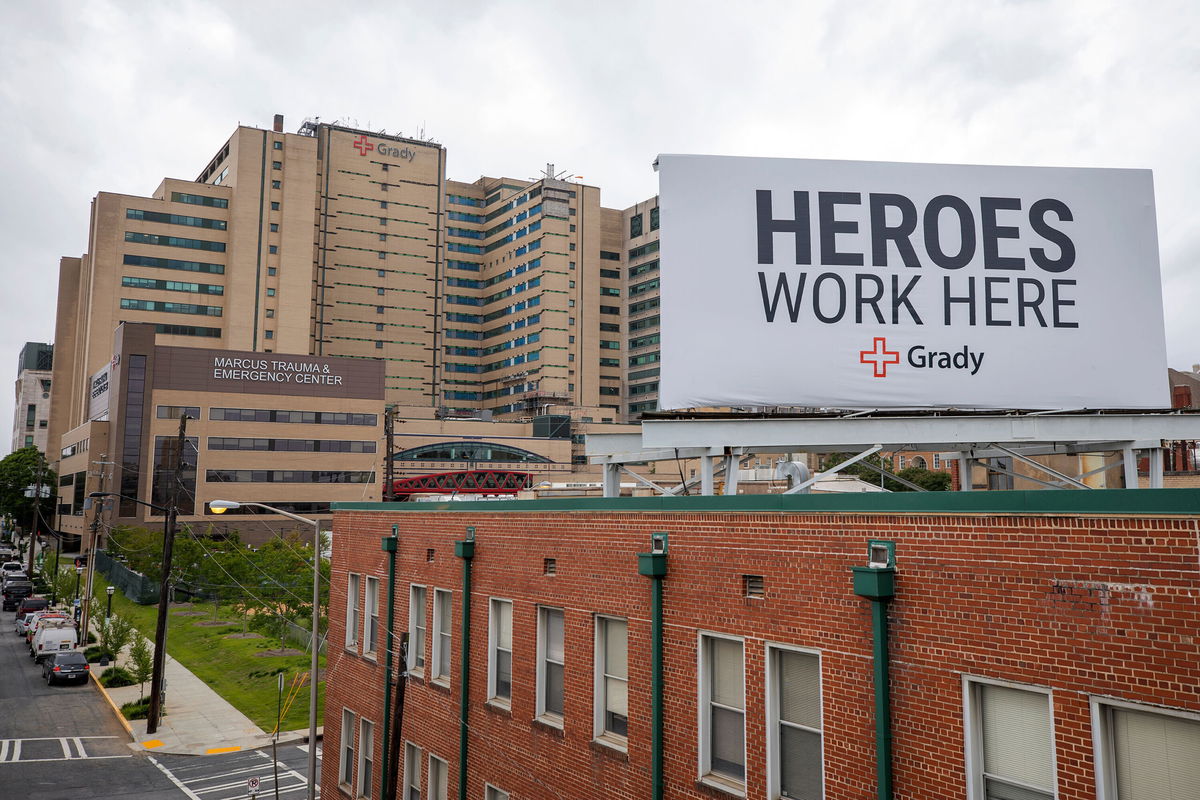Metro Atlanta hospitals are overwhelmed — and some ambulances must get diverted, health care leaders say

Some Atlanta-area hospitals are so packed that ambulances are getting sent elsewhere.
By Maria Cartaya and Holly Yan, CNN
Some Atlanta-area hospitals are so packed that ambulances are getting sent elsewhere.
Medical professionals from six healthcare systems described overwhelming conditions during a virtual news conference Thursday as the Omicron variant keeps tearing across the South.
“Aside from being overwhelmed with patients — and we are running about 110% capacity right now — we’ve had to divert ambulances over the last several weeks because of the huge number of patients coming in,” said Dr. Robert Jansen, chief medical officer at Grady Health System in Atlanta. “That has a big impact on the rest of the city.”
While some parts of the country have started to see new Covid-19 numbers decrease, many others are struggling with the Omicron wave.
“Do understand: This is real,” Jansen said. “This has been an overwhelming peak on top of an already fatigued staff.”
Not enough staff and resources
It’s not the just the crush of patients pushing some hospitals to the limit — it’s also staff shortages.
“Hospitals continue to remain overwhelmed with patients in the metro Atlanta area,” said Sharon Pappas, chief nurse executive at Emory Healthcare. “We are seeing many nurses and clinicians leave the profession or pause their careers because of the stress the pandemic has caused both personally and professionally.”
In some cases, people who show up to an ER might not get the urgent treatment they were expecting.
“If you present to the emergency room and to the hospital, physicians unfortunately are in the position of having to triage care, which is demoralizing to all doctors,” said Dr. Jayne Morgan, executive director of the Covid-19 task force at Piedmont Healthcare.
And the ripple effect of this Covid-19 wave is widespread, said Katie Kirkpatrick, CEO of the Metro Atlanta Chamber.
“We are still in a crisis and a global pandemic that is significantly impacting our communities and our healthcare systems,” Kirkpatrick said.
How to help solve the problem
“My first ask is that you take care of yourselves and one another by getting vaccinated and participating in these protective measures, such as wearing your mask, watching your distance, and certainly avoiding large crowds,” said Dr. Danny Branstetter, medical director of infection prevention at Wellstar Health System in Georgia.
“If you’re ill, stay home,” Branstetter said.
Many are probably sick of hearing such advice. But heeding this guidance is the best way out of the pandemic, said Dr. Supriya Mannepalli, medical director for infectious diseases at Northeast Georgia Health System.
“After two years of being in this pandemic, everyone is just tired of hearing the word Covid,” Mannepalli said. “But we’re still here — in the middle of our fifth wave — and we just have to continue to reinforce.”
The-CNN-Wire
™ & © 2022 Cable News Network, Inc., a WarnerMedia Company. All rights reserved.